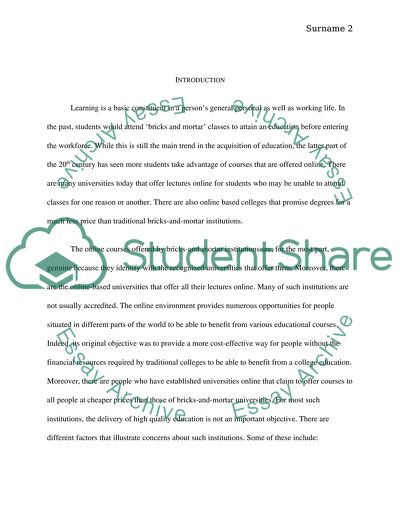Cite this document
(“Is Online Education Good or Bad Essay Example | Topics and Well Written Essays - 2750 words”, n.d.)
Retrieved from https://studentshare.org/education/1480968-is-online-education-good-or-bad
Retrieved from https://studentshare.org/education/1480968-is-online-education-good-or-bad
(Is Online Education Good or Bad Essay Example | Topics and Well Written Essays - 2750 Words)
https://studentshare.org/education/1480968-is-online-education-good-or-bad.
https://studentshare.org/education/1480968-is-online-education-good-or-bad.
“Is Online Education Good or Bad Essay Example | Topics and Well Written Essays - 2750 Words”, n.d. https://studentshare.org/education/1480968-is-online-education-good-or-bad.


